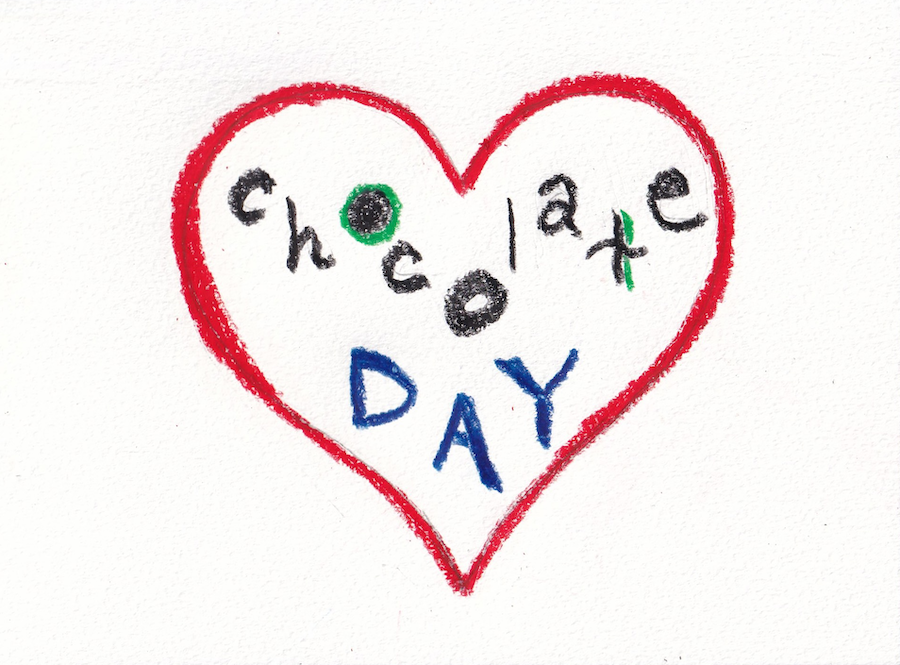
14 3月 White Day
Today is White Day. For those of you who don’t know, it’s a tradition that was started by a Japanese candy company in an effort to increase its sales. According to the generally accepted rules of Valentine’s Day and White Day in Japan, it is expected that females will give chocolate to males on Valentine’s Day, and males will give females a gift in return on White Day. It is also generally expected that the males give a gift that is worth as much as 2 to 3 times the value of the chocolate they received on Valentine’s Day.
As a chocolate lover myself, I enjoy receiving a chocolate gift, but this tradition has some problems.
1. The blatant consumerism of creating a holiday with the sole purpose of selling chocolate is troublesome. Christmas has become similarly tainted, but at least it didn’t originate in a corporate boardroom.
2. The rigid creation of rules based on gender feels old-fashioned and offensive.
3. The expectation that males will give a more expensive gift than females is not only sexist, but I imagine that it is based on the economic reality in Japan that men are paid 22.5% more than women. Japan was ranked 121 out of 146 in the World Economic Forum’s 2022 Gender Gap Report.
4. In Japanese culture, the color white tends to be associated with pureness and goodness. White colored skin is considered to be the ideal in Japan, as it is in many other countries around the world. The idea that white colored entities are superior or more pure than others is offensive, especially to people of color. Terms such as “white sale”, “White Day” and “Snow White” should be avoided. Pure crude oil is black in color. Pure cane sugar is brown.
On my first trip to Japan, not knowing the “rules”, I gave my host family a box of chocolates on Valentines Day. The room became very silent as they pondered how to deal with my faux pas. They probably thought I was gay, as well.
March 14, 2023
今日はホワイトデーです。ご存知の通り、White Day というのは、2月の売上を伸ばそうと日本のお菓子メーカーが必死に考え打った「バレンタインデー(Valentine’s Day はキリスト教の記念日のひとつ)」キャンペーンが大成功したため、それにあやかり、さらに市場を盛り上げようとするため、新たなキャンペーンとして設定されたイベントの日です。「日本型のバレンタインデー」は、女性が男性へチョコレートをあげて告白する(そこから派生し、義理チョコ、友チョコ、自分へのご褒美チョコまである!)。そしてホワイトデーには、バレンタインチョコをいただいた男性が、女性へお返しをするというルールで、そのギフトは最低でもいただいたチョコと同額程度、しかし一般的には2倍返しが常識的(?)で、高くても3倍までの値段のものがいいということになっているようです。
チョコレートもキャラメルも僕の大好物! いつだって何かいただきものをしたら、そりゃうれしいしありがたく思います。ですが、この習慣には問題点がありすぎて、めまいがしそう……。このエッセイを座って書かせていただきます。
1. チョコのお返しを売るために普通の日を祝祭日のように扱う、貪欲な資本主義的な消費主義は不愉快です。会社の会議室で生まれた日は、祝祭日ではない! なお、クリスマスやイースターやバレンタインには、オリジナルの由来がありますが、同じようにどんどんと商業主義的になってしまっていることは残念。。
2. 祝い方のルールが、現代社会が目指すLGBT的な方向性と合わなくなってきているのではないでしょうか? 本来の「Valentine’s Day」は、(男女問わず)好きな人に気持ちを伝える日で、カードだけを贈る場合もあるし、プレゼントを贈る場合は、チョコやそれ以外のお菓子やお花など、何を贈っても自由で、子どもでもできそうな、少し軽めな記念日、という感じかな。クリスマスやイースターほどメジャーではないし、真面目なプロポーズもなくはないだろうけど、その場合は「プロポーズ」にふさわしい指輪などを贈るだろうし。
3. 男性が女性より高いものを買うルールは男女差別です。しかしその根底にはおそらく、日本の男性の収入が女性より22.5%も高いという現実が潜んでいるのでしょう。世界経済フォーラムの男女格差を測るジェンダー・ギャップ指数 (World Economic Forum The Global Gender Gap Report 2022) によると日本の「経済」の順位は146カ国中121 位でした。性差による収入差を是正することが、「先進国」である日本にとって急務なのではないでしょうか? ちなみに、ジェンダー・ギャップ指数の「政治」の順位は146カ国中139位です。。
4. 日本では、白色はピュア、純正、優れたものというイメージになっているの? という印象を受けることがよくあります。世界中で(日本も含め)白い肌が理想になっている国が多い現状もあります。白いものが最もよいという考えはおぞましい、特に有色人種にとって。「ホワイトセール」「ホワイトデー」「スノーホワイト」などの表現は、現在の世界にふさわしくないと思います。「pure crude oil (純粋な原油)」は黒色、「pure cane sugar (マスコバド黒糖)」は茶色です。
僕が大学の留学で初めて日本に来たとき(半年間)、バレンタインデーの「日本型ルール」を知らず、ホストファミリーにチョコを贈りました。急に部屋の中がシーンとして、僕にどう応えればいいのかと、ホストファミリーは困っていました。僕のことをゲイと思ったのだろうか。。
2023年 03月 14日

